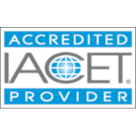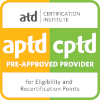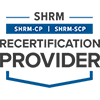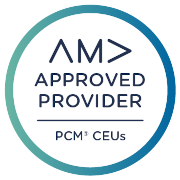Product Details
Topics Covered
- Paid search (pay-per-click)
- Search marketing
- Search engine marketing (SEM)
- Search engine optimization (SEO)
- Search process
- Search buying cycle
- PPC account goals
- PPC account
- Conversion rates
- Bids
- PPC audit
- Keyword searches
- Keyword planners
- Keyword matching
- Negative keywords
- Ad parts
- Dynamic keywords
- Ad extensions
- B2B searchers
- B2C searchers
- Mobile ads
- Desktop ads
- Landing pages
- Optimization
- Search vs. display advertising
- Display ad formats
- Contextual advertising
- Paid search report
- A/B vs. multivariate testing
- PPC channel management
Key Features
- Mobile-friendly
- Audio-enabled
- Badge and credit-awarding
- Real-world case studies
- Fully accessible
- Games & Flashcards
- Expert-supported
- Video content
Course Preview
Course Description
Learning Outcomes
- Explain the purpose of paid search (pay-per-click) advertising
- Define search marketing, search engine marketing (SEM), and search engine optimization (SEO)
- Describe the search process and the search buying cycle
- Demonstrate how to set PPC account goals and measure them
- Explain how to build a PPC account and estimate conversion rates
- Understand and set bids
- Conduct an audit of a PPC account
- Describe different types of keyword searches
- Explain how to use keyword planners and other tools
- Describe how to use keyword matching and negative keywords
- Describe the benefits of paid search (pay-per-click) and the parts of an ad
- Explain how dynamic keywords and different ad extensions are beneficial
- Relate how a marketer can segment B2B and B2C searchers
- Describe the difference between mobile and desktop ads and landing pages
- Explain how to optimize a landing page
- Understand the difference between search and display advertising
- Describe display ad formats and the importance of contextual advertising
- Identify components of an effective paid search report
- Describe the pros and cons of A/B versus multivariate testing
- Explain how to manage the PPC channel and why editors are useful
Notes
This course has an "Ask the Expert" feature, which submits your questions directly to an expert in the field you are studying. Questions are answered as quickly as possible and usually within 24 hours.
As an Accredited Provider, MindEdge offers for its learning events that comply with the Continuing Education and Training Standard.
Learners must achieve an average test score of at least 70% to meet the minimum successful completion requirement and qualify to receive credit. Learners will have three attempts at all graded assessments.



